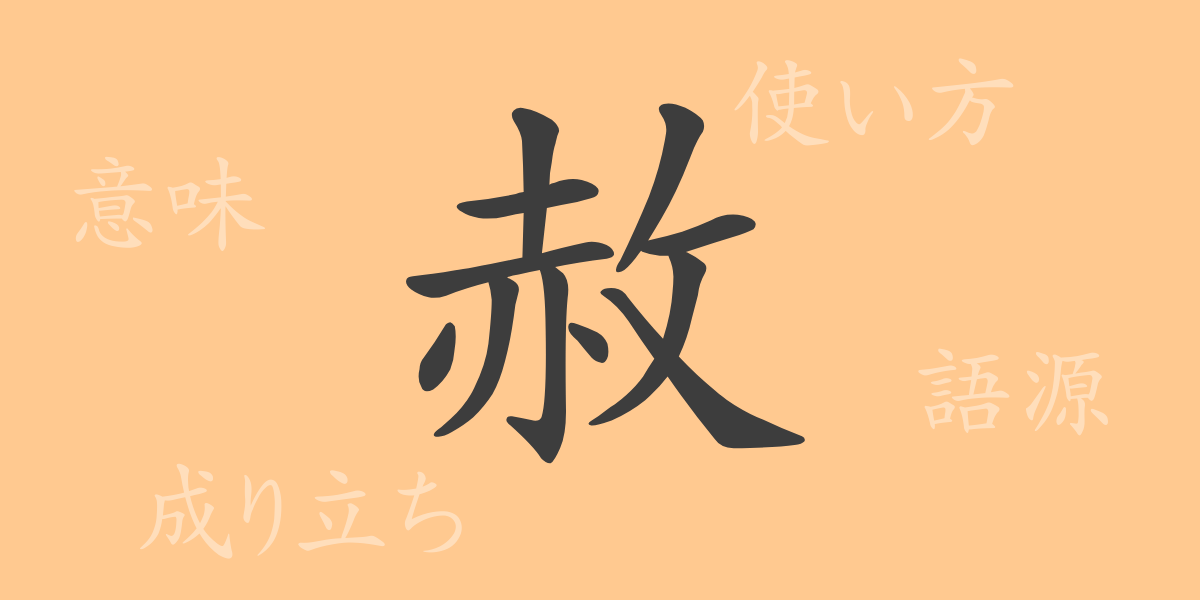The Japanese language contains many kanji characters, each with its own unique history and meaning. The kanji “赦(しゃ)” is not frequently used in daily life, but it carries deep meaning and cultural background. In this article, we will delve into the origins of “赦,” its modern usage, and the idioms and phrases that use this kanji.
Origins of 赦(しゃ) (Etymology)
The kanji “赦(しゃ)” comes from ancient China, where it is deeply connected to ancient laws and moral views. Tracing its etymology, this character originally meant to forgive or pardon sins and mistakes. It was closely associated with the concept of amnesty granted by rulers to their people. Over time, its meaning expanded and it began to be used in broader contexts.
Meanings and Uses of 赦(しゃ)
The kanji “赦(しゃ)” means to forgive or pardon sins and mistakes, granting exemption from punishment. In legal contexts, it is often used to refer to amnesty for specific crimes. In religious contexts, it can denote the forgiveness of sins by a deity. Generally, it is used to express positive emotions of forgiveness and broad-mindedness between people.
Readings, Stroke Count, and Radical of 赦(しゃ)
The kanji “赦(しゃ)” contains a wealth of information derived from its shape and structure.
- Readings: The on’yomi (音読み) is “シャ,” and there is no kun’yomi (訓読み).
- Stroke count: It consists of 13 strokes.
- Radical: The radical is 赤部(あかへん), which represents the concept of “red.”
Idioms, Phrases, and Proverbs Using 赦(しゃ)
Idioms and phrases that include “赦(しゃ)” express the depth of its meaning. For instance, “恩赦(おんしゃ)” means amnesty, where a criminal’s sentence is pardoned, commonly used in legal terminology. “大赦(たいしゃ)” refers to a general amnesty granted by the state on special occasions. These idioms and phrases highlight important concepts related to human ethics and legal systems.
Conclusion on 赦(しゃ)
This article has explored the historical background and modern significance of the kanji “赦(しゃ).” Beyond its literal meaning, “赦(しゃ)” symbolizes human ethics and the spirit of the law. Its use in Japanese culture and language represents an important step towards forgiveness and new beginnings. These concepts reflect the spirit of tolerance and restoration in Japanese society.

























